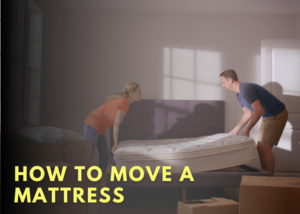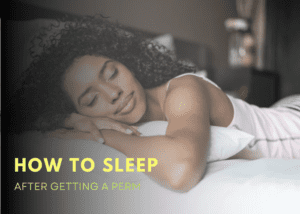Is sleeping on the floor bad for you? Why do people with bad backs sleep on the floor and not in bed on a comfortable mattress?
You don’t have to worry about sleeping on the floor. It can cause stiffness and soreness around joints on the head. Those with bad backs swear that lying on the floor gives them the most relief since their spine is in a neutral position.
Is sleeping on the floor good for the back?
It depends on the circumstances and why you are sleeping this way.
Some folks find sleeping on their back laying on the floor provides the best natural support for the spine, and you could argue it places the lower back under a lot of stress that could cause your lower back to become sore.
If you have an aching back for a long time, you will try lying on your back while you try to sleep.
It would be easy to suggest that laying on the floor is much better than sleeping on a crappy old mattress that sags and offers no support. Most folks would agree with you.
Sleeping on the floor has a lot of drawbacks, and you would have to assume it’s very uncomfortable and not a very inviting proposition at bedtime.
While back sleepers may find some relief as their spine is supported in a relatively neutral position sleeping on your side would be a whole different matter to contend with.
Sleeping on your side on the floor would not support your spine and would be uncomfortable.
Without adequate cushioning for your shoulder, hips, knees, and ankles, the pain could reach intolerable proportions during the night due to the sheer pressure on your bones.
Without an insulating pad, you could become extremely cold as the floor absorbs the heat from your body.
Dust and dander settle, and now you are lying among the detritus in your home or, worse, someone else home.
Invariably, some of you floor sleeping advocates will disagree, but floor sleeping is not a long-term solution for back problems for the average person.
Is it healthier to sleep on the floor?

It’s a subjective question that can only be answered by saying it’s no more healthy than sleeping on a medium to firm mattress.
If you must sleep on the floor, then you need to understand how to sleep comfortably on the floor without feeling like you are being punished in a supermax facility.
Don’t be a hearo, place a soft cushioned fabric between you and the hard floor, it will provide some level of insulation and comfort knowing you are laying on a clean surface.
Use a pillow or pillows, whatever your reason for sleeping on the floor, you can still use a pillow to support your head and neck. Select a slim pillow that will align your cervical spine or place your neck in a neutral position.
Sleeping on your back for hours is uncomfortable unless this is your preferred sleeping position. You will feel tendons stretching in your legs and hamstrings, and your tummy muscles will feel stretched.
To take some of this tension from your body, place a couple of pillows under your knees. This will remove the stretched on a rack feeling and allow for better sleep.
Why does sleeping on the floor hurt?
When it comes to sleeping, the floor is an unforgiving place to sleep. There is no give or spring for your body’s natural curve to sink into.
Although it can be therapeutic for those who have back pain issues, it offers very little to those who have grown up sleeping in a bed.
Sleeping on the floors causes soreness from pressure points like your shoulders, hips, knees, and ankles.
The lower back muscles are placed in an unnatural position which will cause muscle pain. Some cultures prefer to sleep on the floor, but often the reasons are not health-related and are rooted in long traditions.
Why do Japanese sleep on floors?
Traditionally Japanese homes are quite small, so if the family sleeps on the floor, the bedding can be folded quickly and the room repurposed for different uses.
Japan frequently has earthquakes, and if you are sleeping on the floor and not in an elevated position, you are less likely to receive an injury from falling out of your bed. Yes, some earthquakes are strong enough to shake you from your bed.
The truth is the Japanese do not just literally lay on the floor and sleep. They palace down a futon, not to be compared to western futons.
The futon is considered like a firm mattress offering support to the body and removing pressure points.
Is it OK to put a mattress on the floor?
Mattresses are said to be designed to have a bed frame or a spring bed base, but to be honest, you can put your mattress on the floor. If you have a memory foam mattress, it would be ideal for sleeping on the floor.
Your mattress may feel firmer, which is good, particularly if you have a saggy mattress. The comfort level will, of course, depend on the thickness of the mattress.
If you have a new mattress and decide you want to try it out on the floor, go ahead, but if you have a warranty claim, there may be some issues from the manufactures side if you are not using the mattress as designed.
Finding a way to sleep on the floor can be challenging when it comes to comfort, and you will need to persevere if you plan to sleep on the floor long term.
It is advisable to place some cushioning on the floor to avoid painful pressure points around the body. A memory foam mattress topper could offer the perfect solution.
How To making Sleeping On The Floor comfortable
There are a few things you can do to make sleeping on the floor more comfortable:
- Use a mat or a thin mattress for cushioning: A mat or a thin mattress can provide some cushioning and help to reduce pressure on your body.
- Use a sleeping bag: A sleeping bag can help to keep you warm and provide some insulation from the floor.
- Use a pillow: A pillow can help to support your head and neck, which can help to reduce pressure on these areas.
- Use a comfortable blanket: A comfortable, soft blanket can help to provide warmth and comfort.
- Experiment with different positions: Finding a comfortable position is key to a good night’s sleep. Experiment with different positions to find one that is comfortable for you.
- Stretch before bed: Stretching can help to relax your muscles and prepare your body for sleep.
- Consider using a sleeping pad: A sleeping pad can help to provide insulation and cushioning, which can make sleeping on the floor more comfortable.
It’s also a good idea to make sure the area where you are sleeping is clean, quiet, and free from distractions.





